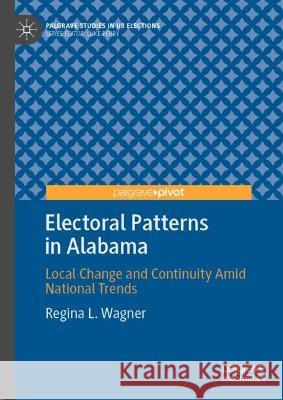Electoral Patterns in Alabama: Local Change and Continuity Amid National Trends » książka
topmenu
Electoral Patterns in Alabama: Local Change and Continuity Amid National Trends
ISBN-13: 9783031067693 / Angielski / Twarda / 2022 / 101 str.
Kategorie BISAC:
Wydawca:
Springer International Publishing AG
Seria wydawnicza:
Język:
Angielski
ISBN-13:
9783031067693
Rok wydania:
2022
Ilość stron:
101
Wymiary:
21.0 x 14.8
Oprawa:
Twarda
Dodatkowe informacje:
Wydanie ilustrowane











